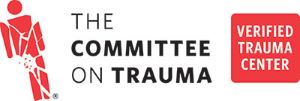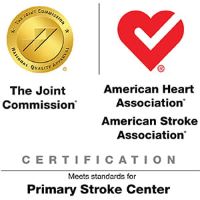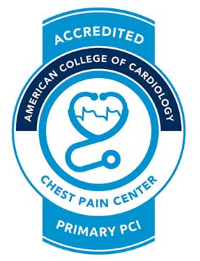Trauma care in Idaho Falls, Idaho
Health Risk Assessments
Take one of our free health risk assessments! This short quiz helps highlight your risk factors for certain diseases or conditions and provides personalized recommendations.
At Eastern Idaho Regional Medical Center (EIRMC), our team has extensive experience treating a wide range of traumatic conditions. As a regional hospital serving millions of acres of backcountry encompassing everything from potato fields to Yellowstone National Park, we specialize in active lifestyle incidents.
From machinery-related accidents on the farm to mountain-climbing catastrophes, we've seen it all. And while our case types may not be consistent with what you'd find in a big-city hospital, our level of care is.
If you or your loved one suffered a traumatic injury or illness, call 911 immediately.
A severe external blunt force usually causes traumatic injuries. Traumatic or sudden severe illnesses need immediate attention to avoid loss of life or limb. At EIRMC, patients have access to a range of services and physicians.
Our Level II Trauma Center is verified by the American College of Surgeons (ACS) Committee on Trauma. It is also a designated Time Sensitive Emergency (TSE) Level II Trauma Center by the Idaho Department of Health and Welfare.
High-quality emergency trauma care
Our trauma center offers 24-hour immediate coverage in specialties such as trauma surgery, neurosurgery, orthopedic trauma survey, emergency medicine and radiology.
Our trauma specialists have extensive experience and have taken additional training to provide high-quality services. We deliver emergency trauma care to many patients, treat serious to complex injuries and provide essential rehabilitation treatments.
Finally, we regularly assess our services to achieve positive patient outcomes. We also provide ongoing trauma prevention training and continuing education opportunities for our staff. Our center's features include:
- 24/7 emergency room (ER)
- 24/7 intensive care unit (ICU)
- 24/7 pediatric intensive care unit (PICU)
- Advanced equipment and technology for life support
- Computerized tomography (CT) table on standby
- Operating room reserved for emergency use
- Trauma and ER teams trained to work with emergency medical services (EMS) personnel to begin patients' treatments while en route to our facility
Verified Level II Trauma Center

The American College of Surgeons recognizes our team's expertise to get positive outcomes for complex traumatic conditions.
Trauma-related services
Our trauma doctors may involve many of EIRMC's medical specialists in your care. We make sure patients with advanced critical conditions have access to needed resources. Services include:
Burn center
Our burn care center treats patients with severe injuries. First, our trauma and ER doctors steady the patient's vitals. Next, our team admits patients to our specially equipped burn ICU. Here, our team consults specialists, uses advanced life-support technology and conducts round-the-clock monitoring. When our ICU team releases patients, their ongoing treatment may involve plastic surgery, time in a hyperbaric chamber, rehabilitation and outpatient services.
Stroke care
The Joint Commission certifies our Primary Stroke Center. Such certification means our specialists commit to delivering high-quality stroke care with positive patient outcomes. Our trauma team works with neurologists and EMS personnel to give patients clot-dissolving medication (tPA).
Stroke patients need to receive tPA within the first two to three hours after the onset of symptoms. The drug reduces permanent damage or loss of life. Next, our teams coordinate services like ICU and rehabilitation. We work to help patients regain their independence as fully as possible.
Heart attack care
Our trauma specialists work with our ER and teams specializing in heart attack care to stabilize patients who come to us with symptoms quickly. As a Chest Pain Center accredited by the American College of Cardiology, we specialize in delivering effective treatment. After stabilization, our cardiologists immediately begin care to prevent permanent damage. Our heart doctors also use methods like surgery and noninvasive procedures to treat patients.
Traumatic conditions we treat
Our trauma center works with our ER doctors to stabilize patients before admission to our burn, PICU or ICU unit. After release from critical care, patients may continue their recovery with rehabilitation or outpatient services. Some situations that may require trauma care include:
- Brain, head or spinal cord injury
- Burn injury
- Deep cuts, stab or puncture wounds
- Falls with broken bones
- Heatstroke
- Gunshot wounds
- Hiking accidents
- Hunting accidents
- Severe blood loss injury
- Severe car accidents
- Tractor or farm-related accidents
- Unconsciousness
Advanced Primary Stroke Center

Our stroke specialists offer fast evaluation and individualized care that helps stroke patients recover as fully as possible.
Chest Pain Accredited

Our doctors are experts in providing timely diagnoses and treatments to help patients survive heart disease complications.
